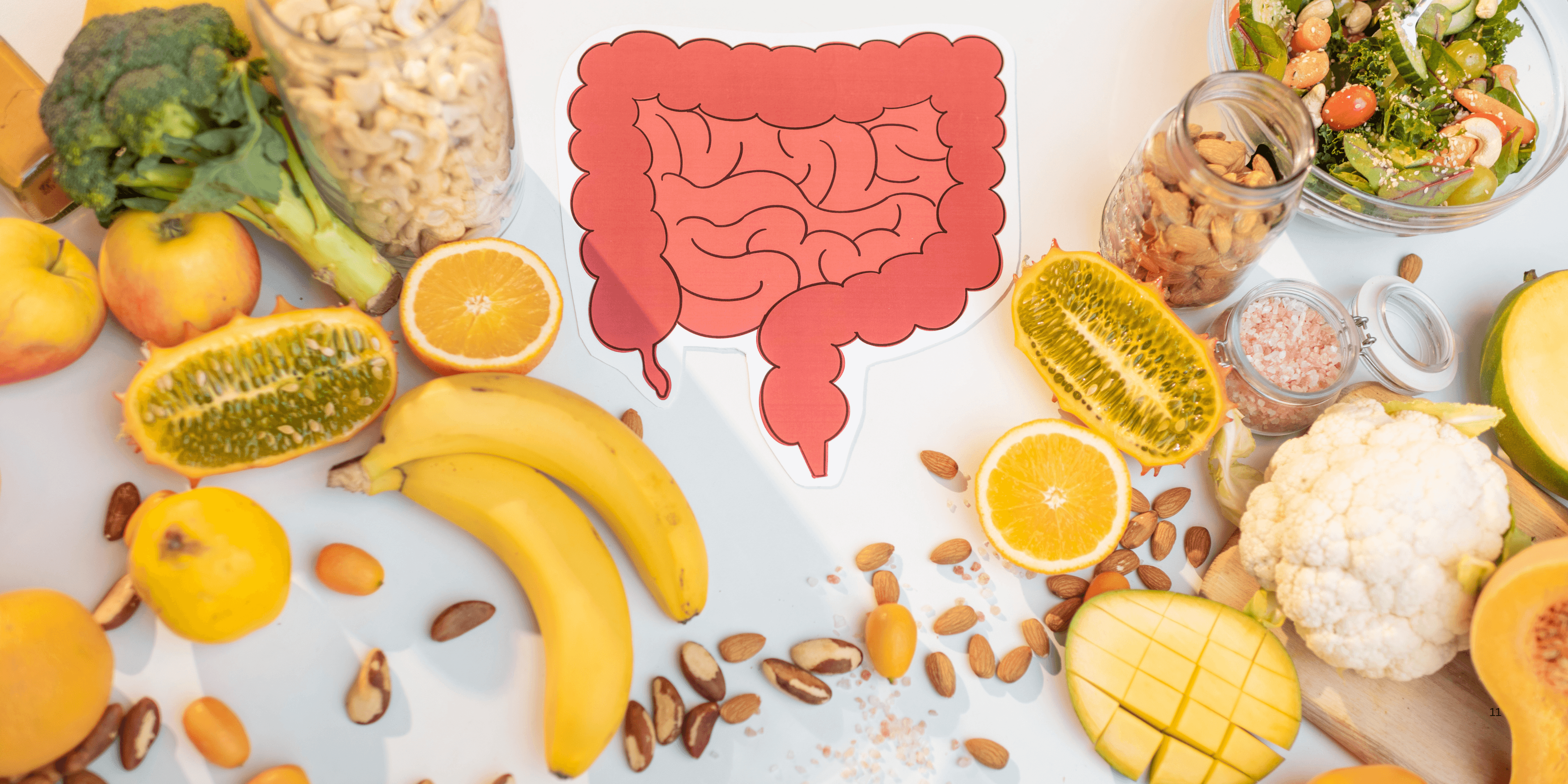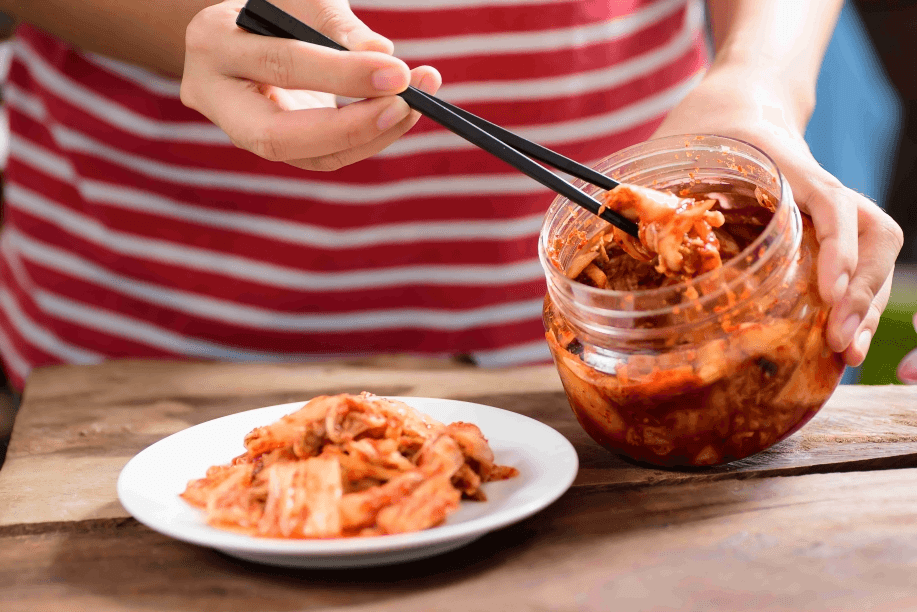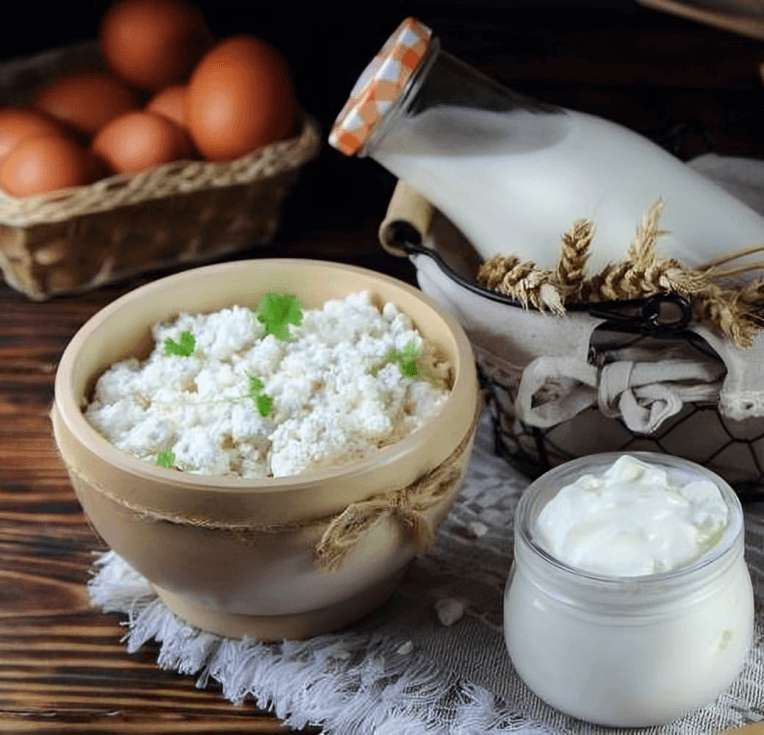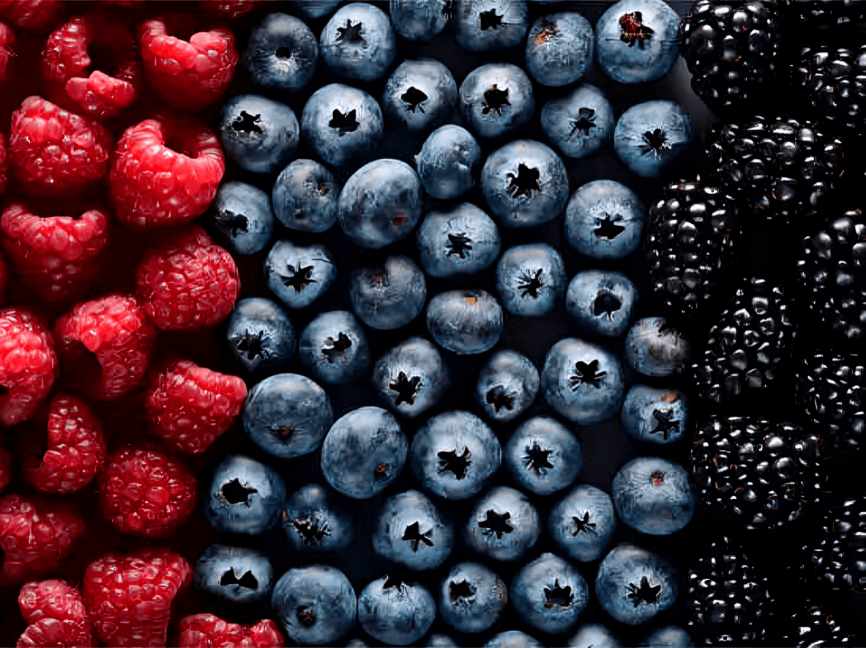
“
Maintaining a strong digestive system begins with choosing the best foods for gut health & digestion. These foods do more than ease your stomach—they fuel your microbiome, support nutrient absorption, and help your body fight inflammation. 1
1
”
Hippocrates, often called the Father of Medicine, once declared, “All disease begins in the gut,” emphasizing how food choices like fermented dairy and legumes promote strong digestive balance.1
Yogurt is rich in probiotics, especially Lactobacillus and Bifidobacterium, which restore gut flora and support the immune system by reducing bad bacteria and inflammation inside intestines. 2
Ginger stimulates the production of saliva and bile while relaxing the gastrointestinal tract. It's commonly used to relieve nausea, indigestion, and bloating, making it ideal for overall digestive health. 3

Kimchi, a traditional Korean fermented dish, provides lactic acid bacteria that enhance gut flora, and its combination of cabbage, garlic, and chili offers antimicrobial and digestion-boosting benefits naturally.
Bananas are high in prebiotics such as inulin, which nourishes probiotics in your gut. They also help restore electrolytes and balance stomach pH, easing digestive issues like acid reflux and diarrhea. 4
Chia seeds absorb water and expand in your digestive tract, supporting bowel regularity and feeding good bacteria with soluble fiber, while offering essential omega-3s for inflammation reduction. 5
Apples contain pectin, a soluble fiber that functions as a prebiotic. This encourages the growth of good gut bacteria, improves digestion, and assists in regulating blood sugar and cholesterol levels. 6
Miso, a fermented soybean paste from Japan, contains probiotics that support the gut microbiome and aid in protein digestion. It also boosts immune function through improved nutrient absorption. 7
Garlic has antimicrobial properties that help kill harmful gut bacteria while promoting the growth of healthy microbes. It's also rich in inulin, a prebiotic fiber that supports the intestinal ecosystem.8

Kefir is a tangy, fermented milk drink that’s more probiotic-dense than yogurt. It aids lactose digestion, boosts immunity, and supports healthy gut flora with a variety of live cultures.
Lentils are rich in fiber and resistant starch, which help regulate bowel movements and support the growth of gut-friendly bacteria while reducing bloating and digestive inflammation. 9
Asparagus acts as a powerful prebiotic by feeding beneficial gut bacteria. It's loaded with inulin, which improves nutrient absorption, digestion, and overall gut flora stability over time. 10
Leafy greens like spinach and kale contain sulfoquinovose, a sugar that nourishes good gut bacteria. They also help regulate digestion by providing insoluble fiber, magnesium, and antioxidants. 11
Almonds are packed with fiber and healthy fats that encourage gut-friendly bacteria to flourish. They also help balance stomach acidity, preventing discomfort and improving bowel consistency. 12
Green tea contains polyphenols that support good gut bacteria and reduce inflammation. It also has antimicrobial properties that help manage harmful microbes without disrupting beneficial ones. 13
Fennel seeds contain anethole, which relaxes the muscles in the digestive tract, easing gas, bloating, and cramping. They're especially useful after meals to promote smooth digestion. 14

Berries like blueberries and raspberries are high in antioxidants and fiber. They encourage the growth of healthy gut bacteria and reduce inflammation, enhancing both digestive and overall health.
Coconut yogurt is a dairy-free probiotic option that supports gut health. It’s loaded with live cultures and is suitable for those who are lactose-intolerant or vegan, aiding digestion without discomfort. 15
Avocados offer fiber and monounsaturated fats that help lubricate the intestines, ensuring smoother digestion and feeding good bacteria to maintain a diverse and healthy gut microbiome. 16
The 11th-century Persian physician Avicenna emphasized diet in healing. He recommended natural foods like yogurt, figs, and herbs to support digestion and boost health by strengthening the gut. 17


